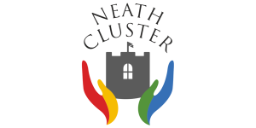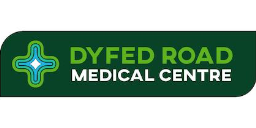


We offer face to face appointments or telephone appointments for routine queries/follow up/sick papers. We have appointments which open on the day or up to 14 days in advance.
Emergency appointments must be attended face to face. You may be seen by any of the doctors in the surgery.
Please arrive on time for the appointment and we will endeavour to be running to time, but please understand that due to the nature of emergency surgeries you may have to wait to be seen.
Appointments are bookable by telephoning the Practice on 01639 635331. One of our Reception staff will ask you for a brief reason for your call and will then book an appropriate appointment with a Health Care Professional (either a GP, Practice Pharmacist, Practice Nurse or Practice Paramedic) or will signpost you to the most appropriate cluster-based/health board wide service.
It is also possible to book some appointments via the NHS Wales app. Appointments are available each working day at 8:00am.
Appointments with our Practice Nurses, Health Care Support Worker and Pharmacist are also bookable up to 2 weeks in advance.
Requests for house calls should only be made for those who are housebound or terminally ill.
If you want a house call, please contact us before 10am. A doctor may ring you back to assess the need for a house call.
Please remember however that house calls take a lot of time and doctors can usually see five patients in the time taken to visit one at home.
Most medical problems can be dealt with far more effectively at the surgery.
If you need advice over the phone, you can contact the receptionists who will contact the doctor on your behalf.
The Swansea Bay GP Out of Hours Service operates from 6.30pm to 8am on weekdays, and all day on weekends and bank holidays. There is one number across Swansea and Neath Port Talbot to access this service: 111
If you need to see a GP urgently during these times, and cannot wait until the surgery opens, call 111. You will be answered by a trained call handler who will take some details and then a GP will call you back to assess the patient's needs. The patient will be offered self-help advice, or an appointment at one of the two SBU primary care centres in Morriston and Neath Port Talbot hospitals. Sometimes, if the GP thinks it is necessary, a home visit may be arranged.
Or you can phone NHS Direct on 111. NHS Direct gives advice about healthcare and illness.
It can advise you whether you need to go to the A&E (Accident and Emergency) department at your nearest hospital.
You can telephone the surgery for test results between 3.00pm and 5:30pm on 01639 635331.
If any patient shows violent or abusive behaviour towards our staff or doctors, we will remove them from the list immediately.
We are a training practice and each year we have a GP registrar who works under the supervision of one of our trainers.
These registrars are highly-trained doctors with more than three years experience since they qualified, but it is a requirement that they work for one year supervised by a GP.
Medical students from the University of Wales College of Medicine or Swansea University will also be attached to the practice under the supervision of our doctors.
There is disabled access to the surgery and two parking spaces for disabled patients. There are disabled toilet facilities at the surgery and also a loop system for the benefit of our deaf and hard-of-hearing patients.
Keeping information confidential is of utmost importance. We have a room available for private conversations with members of staff. We will instantly dismiss any member of staff who does not respect your confidentiality.
Why does the NHS collect information about you?
To help you:
Your doctor and the team of health professionals caring for you keep records about your health and any treatment or care you receive from the NHS. This information will either be written down (manual records), or held on a computer (electronic records). These records are then used to guide and manage the care you receive. This is to make sure that:
- your doctor, nurse or any other health professional involved in your care has accurate and up-to-date information to assess your health and decide what care you need when you visit in the future
- you are invited to receive routine treatment such as immunisations and screening
- there is a good basis for assessing the type and quality of care you have received. This will lead to better care both for you and for other patients
- your concerns can be properly investigated if you need to complain about the care you receive
- if you see another doctor, or are referred to a specialist or another part of the NHS, they can see your medical history
You may also be receiving care from organisations outside the NHS (like social services). If so we may need to share some information about you so that everyone involved in your care can work together for your benefit. Information about you will only be used or passed on if others involved with your care genuinely need it.
To help others:
Your information may be used to help protect the health of other people and to help create new services and healthcare methods in the future.
Under the law, your doctor may have to give information to certain organisations.
- Under the 1984 Public Health (Control of Disease) Act and the 1988 Public Health (Infectious Diseases) Regulations doctors have to pass on information that is needed to prevent the outbreak of certain diseases. If you have an infectious disease which might endanger the safety of others (e.g. meningitis or measles but NOT HIV/AIDS) then your doctors will tell the relevant organisations.
- The 2001 Health and Social Care Act (Section 60) allows certain organisations to ask for essential information from your GP or hospital in order to carry out their work. This is strictly controlled and is only allowed after an application has been made to and approved by the Secretary of State for Health.
Some services need information to support research and follow trends in diseases. This makes sure that:
- healthcare organisations can plan ahead and provide the right services to the right people
- progress can be made in diagnosing and managing diseases
- drugs can be made more effective for example, by reducing side effects
To help the NHS:
Your information is also used to help manage the NHS. It may be used to:
- review the care given to patients to make sure it is of the highest possible standard
- make sure services are planned to meet patients’ needs in the future
- investigate complaints, legal claims or important incidents
- pay your GP, dentist, optician, pharmacists (chemist) and hospital for the care they give you
- check and report on how effective the NHS has been
- make sure that the NHS and its services give value for money
The Guiding Principles of Confidentiality
Your information may be used for reasons other than your direct care, and this leaflet explains when this might happen. Whenever this is necessary, your information will be handled in the strictest confidence and will be subject to the principles of confidentiality. These principles are legally binding to ensure the highest standard possible is applied at all times.
- Whenever possible only information that does not show who you are will be passed on to others and only when they genuinely need it.
- Only the minimum amount of information needed will be passed on.
- Anyone receiving information about you is under a legal duty to keep it confidential.
Further Information:
If you would like to know more about how we use your information or if, for any reason, you do not wish to have your information used in any of the ways described here, please speak to the health professionals involved in your care.
We welcome your suggestions to improve our service.
If you are not satisfied with the service you receive from any member of the practice team, or you want to make a complaint, please contact the practice manager.
Our generic email address is:
DyfedRoadPractice.W98002@wales.nhs.uk
If you are not happy with the way we deal with your complaint, you can contact LLAIS (formerly known as the Community Health Council). Amongst other services, they provide a free and independent advocacy service that offers confidential support, advice and guidance for those wishing to make a complaint against the NHS.
LLAIS
LLAIS – Write to: Neath Port Talbot and Swansea Region, Cimla Health & Social Care Centre, Cimla, Neath, SA11 3SU.
Tel: 01639 683490
Email: NPTandSwansea.enquiries@llaiscymru.org
The Swansea Bay GP Out of Hours Service operates from 6.30pm to 8am on weekdays, and all day on weekends and bank holidays. There is one number across Swansea and Neath Port Talbot to access this service: 111
If you need to see a GP urgently during these times, and cannot wait until the surgery opens, call 111. You will be answered by a trained call handler who will take some details and then a GP will call you back to assess the patient's needs. The patient will be offered self-help advice, or an appointment at one of the two SBU primary care centres in Morriston and Neath Port Talbot hospitals. Sometimes, if the GP thinks it is necessary, a home visit may be arranged.
Or you can phone NHS Direct on 111. NHS Direct gives advice about healthcare and illness.
It can advise you whether you need to go to the A&E (Accident and Emergency) department at your nearest hospital.
Please inform the GP, Practice Nurse, Health Care Assistant or Receptionist if you are a war veteran, so we can make a note of it in your medical records.

